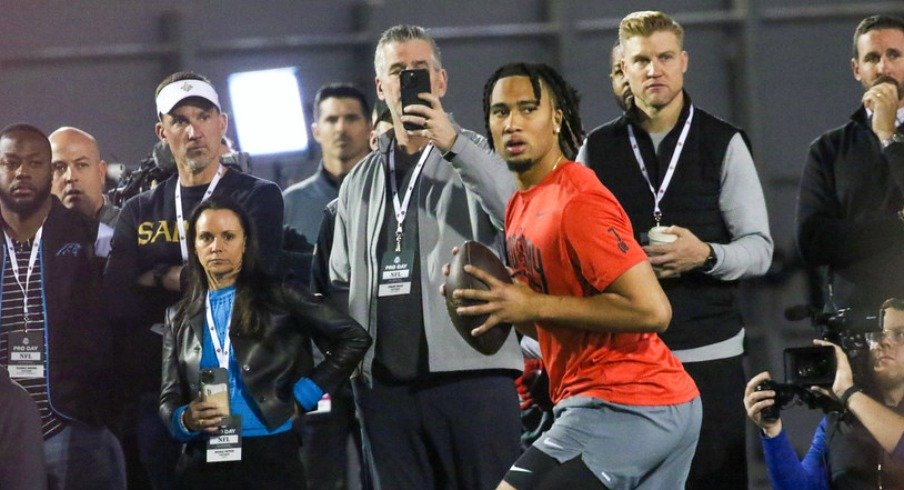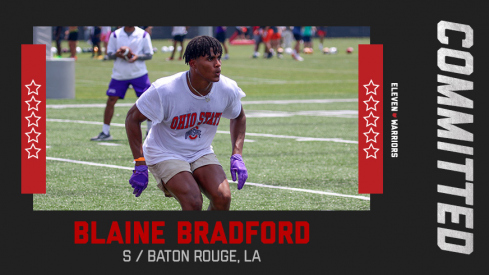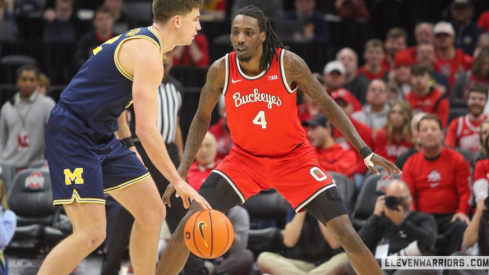I'm not a luddite or a skeptic, I swear.
Yeah, part of me yearns for the days when people had to look up cures for their apoplexy via a complicated system of scriveners and apothecaries sending each other messages via carrier pigeon, but another part of me also likes that an internet exists, where I can type up ridiculous things knowing that a not-insignificant amount of people will spend part of their Saturday trying to decipher them.
That push and pull happens in sports, and you see it everywhere; a cold, data-driven approach for assessing the value of a player is constantly fighting for space with a sepia-toned, romantic appraisal narrated by a guy whose vocal chords sound drenched in molasses.
I think both have their place, to be clear. Advanced statistical analysis in sports, with maybe the exception of weird aptitude tests (to cite a suspiciously specific example that I definitely won't be bringing up in a few paragraphs), has been wrongly maligned by people who refuse to believe that accrued information based on thousands and thousands of points of data can be as valuable as their own two eyeballs. Like Brad Pitt once said in the famous movie Money Balls, "I used to think numbers were bad but then a nerd told me they're good so now I think they're good."
Likewise, there's nothing wrong with some poetic waxing at the end (or beginning) of an athlete's career. A little myth building never hurt anyone, and part of the reason why we make such an emotional connection to athletes, teams, and sports in general is because of the tales that we tell each other about them. My freshman year at Ohio State was 2003, and in the weeks leading up to football season I was a huge Lydell Ross fan entirely because someone had put up a bunch of flyers with his face that said "ROSS IS BOSS". This shit is effective, is what I'm saying.
The danger with both of those things is when they're misapplied. Especially in service of an agenda.
C.J. Stroud was, rightly, taken as the second pick in the NFL Draft, but not after a ridiculous amount of drama that may or may not have been driven in large part by various NFL teams trying to manipulate the outcome of the draft in their favor.
#Colts GM Chris Ballard called out people who leak negative stories about prospects before the draft.
— Ari Meirov (@AriMeirov) April 28, 2023
Would guess he's talking about what CJ Stroud had to go through. pic.twitter.com/d88Y5mOXHE
Part of the criticism of him during the last several weeks was statistical. Allegedly scoring poorly on what purports to be some kind of quarterbacking aptitude test was seen as a knock against a dude who responded with:
"I'm a football player. ... I'm not an S2 taker," Stroud said on Wednesday after the youth football clinic concluded at a local high school. "But shout out to S2, man, they probably have a good system, what they do, no diss to them. But I know who I am, and I know what I can do on that field. And I'll do that at the next level."
Which is a pretty good response, but also one that never would be adequate in the eyes of fans/coaches/general managers who fetishize even the flimsiest of "advanced metrics".
This is part of a larger conversation for another time, but I'm suspicious of the idea that football lends itself to the same kind of advanced statistical analysis that baseball or basketball does. Those two sports (especially baseball) are built on mostly binary outcomes with hundreds or thousands of data points; either the batter gets a hit or they don't, a ball thrown by a pitcher is either a strike or a ball, a shot is made or missed, etc., and those things happen over and over and over throughout the course of a long season consisting of hundreds of games. On the other hand, what purports to be advanced football statistics are more often reliant on subjective judgement calls by the observer, and, by the nature of the sport, is based on more limited data.
It might be true that all great future quarterbacks will have great S2 scores. It's also possibly true that there isn't yet enough evidence to say that a poor S2 score means much of anything.
The other big knock levied against C.J. Stroud was narrative driven, and while we've covered that to death, I still think that former NFL executive Mike Lombardi saying that Stroud has certain "vibes" and doesn't automatically accept what he's told from coaches is hilariously in line with the goofy-ass groupthink that NFL professionals get sucked into way too frequently.
The Houston Texans ignored both of those things, instead opting to believe Stroud had shown them and the rest of the college football world on the field for the past several years. Potential subterfuge aside, that's a fairly large application of faith placed against a football culture that conditions us to disbelieve our lying eyes, in favor of rumors and neologistic analysis.
Here's what we do know about C.J. Stroud: one of the best quarterbacks in the country over the past two years, the dude is incredibly accurate, has thrown for a bajillion yards, rarely makes poor decisions with the football, and consistently performed at a high level against tough competition.
Maybe the Texans and the NFL at large never really bought into anything that attempted to lessen those facts, but what we should take away from the first round of the NFL Draft is that sometimes, decisions about who to draft where aren't quite as difficult as we make them out to be. Fears of drafting a bust (which, who knows, maybe Stroud turns out to be) shouldn't override the obvious right in front of their faces.


